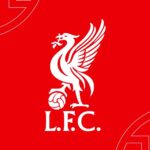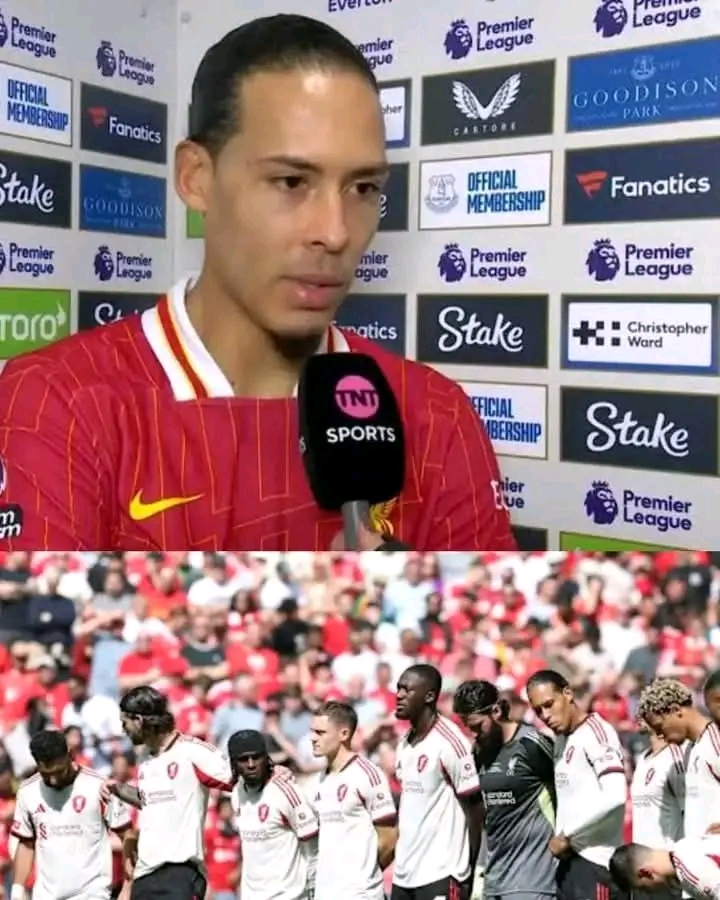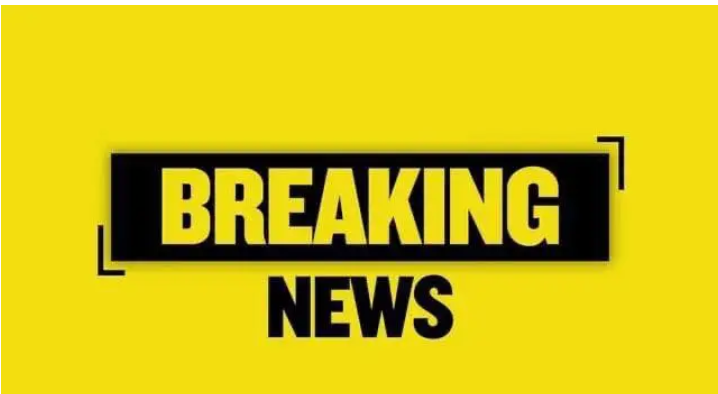The sun shone brightly over Wembley Stadium on what was meant to be a celebratory opening to the English football season. The Community Shield, often seen as a symbolic curtain-raiser and an opportunity to lift the first trophy of the campaign, had set the stage for an exciting clash between Liverpool and Crystal Palace. Yet, despite the promise of footballing spectacle, a heavy sadness overshadowed the day.
Wembley has always been a place of joy, heartbreak, and raw emotion. However, rarely has it hosted such a deeply tragic scene as the tribute that unfolded before this match. What was intended to unite the football world in solemn remembrance instead became a painful reminder of how grief can overwhelm even the grandest stage.
Liverpool captain Virgil van Dijk, usually composed in the face of pressure, was confronted with a far greater test of leadership. Standing through a tribute to his late teammate, he endured the pain of seeing it disrupted by disrespect from a minority in the stands. The grief etched across his face spoke not only of professional loss but also of the deep personal sorrow of losing a friend.
The heartbreak stemmed from an earlier tragedy in Spain. Diogo Jota, a crucial part of Liverpool’s attack, had been traveling with his younger brother, André Silva, when a fatal car accident near Zamora claimed both their lives. At just 28 years old, Jota’s promising career and vibrant life were cut short only days after marrying his long-time partner, leaving behind three young children.
Jota’s passing created a void that extended beyond the football pitch. Known for his work ethic, humility, and professionalism, he was integral to Liverpool’s identity. More than just a scorer of goals, he inspired teammates through intelligence, teamwork, and determination. His journey from Portuguese academies to Wolves, and ultimately to Anfield, reflected a story of resilience and remarkable talent. Admired as a footballer and cherished as a person, his absence is deeply felt.
The Community Shield had been chosen as the occasion to honor Jota and his brother. Plans were carefully made: wreaths, armbands, special programs, and, most importantly, a minute’s silence. Yet, what began as a touching act of unity was marred when a section of Palace supporters interrupted the tribute with chants, breaking the atmosphere of respect. The referee was left with no choice but to cut the silence short.
The disruption caused visible distress to Liverpool’s players and outrage among fans. Many Palace supporters, embarrassed by the behavior of a minority, tried to silence them. The club swiftly condemned the incident, promised investigations, and committed to banning those responsible. Still, the damage had already been done, leaving a moment meant for quiet remembrance tainted by frustration and sorrow.
For Van Dijk, the incident was a true test of leadership beyond tactics or results. Choosing calm over anger, he guided his grieving teammates and later spoke with dignity about both the loss and the disrespect. Crystal Palace’s leadership also expressed deep regret and worked to separate the actions of a few from the respect shown by the majority of their fans.
Although headlines centered on the interruption, it is important to note that most of the 80,000 present stood in silence, honoring Jota with respect. Managers, players, journalists, and supporters later reflected on the incident, recognizing the need for stronger measures to protect such moments of tribute in emotionally charged settings.
Jota’s death, and the flawed tribute at Wembley, highlighted football’s duality. It is a game driven by passion and rivalry, yet equally rooted in humanity and unity. For Liverpool, grief remains raw. For the wider football community, the responsibility to honor his memory continues.




